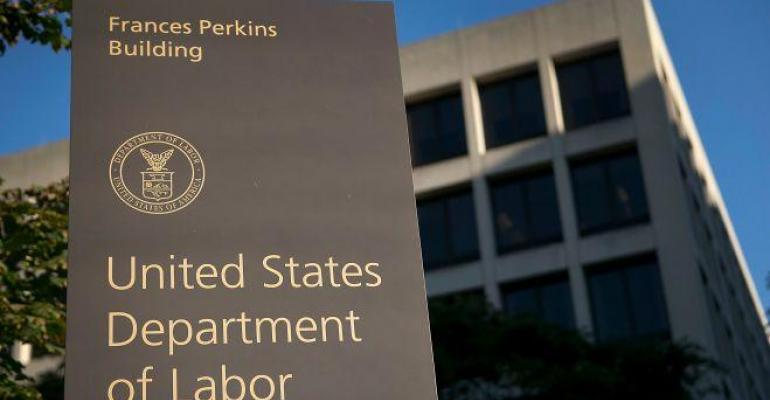The U.S. Justice Department filed a court brief Monday, arguing that the Department of Labor’s fiduciary rule should be upheld, with the exception of allowing class-action lawsuits to be filed under the best-interest contract exemption.
For supporters of the rule, that private right of action—the ability of clients to file class-action lawsuits against firms that don't follow the rule—is fundamental to ensuring the rule's impact. For detractors, it is the primary point of contention, opening the door, they say, for frivolous but costly litigation as tort attorneys target broker/dealers holding individual retirement accounts.
The brief was filed in the Court of Appeals, where the U.S. Chamber of Commerce and others have appealed a district judge’s decision to side with the DOL.
Meanwhile, the department is working to revise the rule. The department issued a request for information Thursday, seeking the public’s feedback on what parts of its fiduciary rule should be revised, if any, and whether the January 1, 2018, applicability date should be delayed.
Michael Shih, a Justice department attorney, wrote that the plaintiffs failed to make the case that the DOL rule should be vacated in full, the one exception being the class-action provision. The BIC exemption’s condition restricting class-action waivers should be vacated as it applies to arbitration clauses, the brief said.
“The government no longer defends that condition in light of the Acting Solicitor General’s construction of the Federal Arbitration Act in a case pending before the Supreme Court, but that condition is severable from the remainder of the fiduciary rule, as the rule itself makes clear,” the brief said.
In the case, argued in the Northern District of Texas, plaintiffs argued the DOL exceeded its regulatory authority in imposing the standard on brokers, failed to recognize the undue burden it would put on those firms selling investment products to retirement account holders, and that the DOL’s cost-benefit analysis of the rule was “arbitrary and capricious.” The plaintiffs also argued that the rule violated their First Amendment right to free speech.
Shih argues that the DOL reasonably interpreted the fiduciary definition, lawfully exercised its authority to issue administrative exemptions, and that the rule’s treatment of certain annuities is not arbitrary or capricious. And the rule does not violate First Amendment rights, he argues.
The first two prongs of the rule went into effect June 9, one expanding the definition of who is a fiduciary and another establishing impartial-conduct standards.
President Donald Trump signed an executive order in February asking the DOL to undertake an economic and legal review of the fiduciary rule. That prompted the department to delay the April 10 implementation date to complete its analysis.

